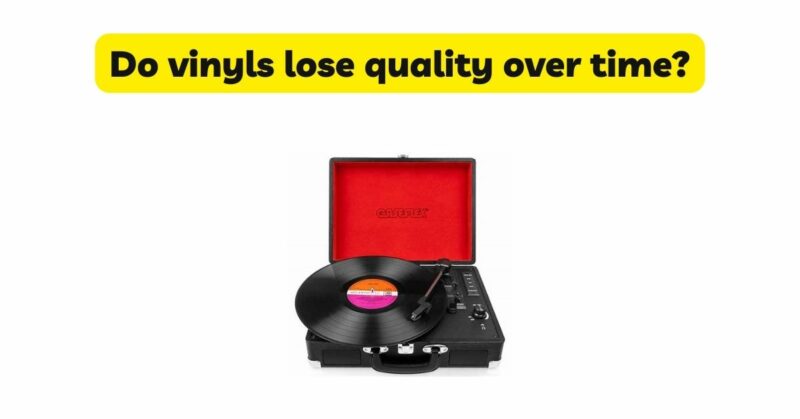Vinyl records have experienced a remarkable resurgence in popularity over the past decade. Their warm, analog sound and tactile nature have captivated music enthusiasts and audiophiles worldwide. However, a persistent concern among vinyl collectors is whether these cherished records lose their quality over time. In this article, we will explore the factors that contribute to vinyl degradation, examine the potential causes of sound quality loss, and determine if this fear is well-founded or simply a misconception.
I. Understanding Vinyl Records and Their Composition:
To comprehend the potential degradation of vinyl records, it is essential to first understand their structure and composition. Vinyl records are crafted from polyvinyl chloride (PVC), a durable plastic that is used to press grooves onto the disc. These grooves contain the audio information, which is later read by a turntable’s stylus. This physical contact between the stylus and the grooves is crucial to the unique sound quality associated with vinyl.
II. Factors Influencing Vinyl Degradation:
While vinyl records are designed to be durable and long-lasting, several factors can contribute to their degradation over time. Let’s delve into some of these factors:
- Environmental Conditions:
- Temperature and Humidity: Extreme fluctuations in temperature and humidity can cause the vinyl to warp, affecting playback quality and potentially causing skipping issues.
- Exposure to Sunlight: Prolonged exposure to direct sunlight can lead to discoloration, warping, and damage to the vinyl’s surface.
- Handling and Storage:
- Fingerprints and Oils: Oils and fingerprints left on the record’s surface can attract dust and other impurities, resulting in potential sound quality degradation during playback.
- Improper Storage: Storing records upright or without protective sleeves can cause the vinyl to bend, warp, and become susceptible to scratches.
- Wear and Tear:
- Stylus Wear: Frequent use of a stylus can lead to gradual wear and tear, resulting in a loss of sound quality and potential damage to the grooves.
- Dust and Dirt: Dust particles and debris can accumulate in the grooves, leading to pops, crackles, and a reduction in sound clarity.
III. Vinyl Degradation vs. Digital Formats:
To assess the extent of vinyl degradation, it is important to compare it with digital formats such as CDs and streaming. Unlike vinyl records, digital formats do not degrade in the same physical sense. However, digital media are not immune to potential data loss due to hardware failure, file corruption, or changes in technology.
IV. Preserving and Maintaining Vinyl Records:
While vinyl records may be susceptible to some degradation over time, proper preservation and maintenance can significantly extend their lifespan and retain their sound quality. Consider the following tips for preserving vinyl records:
- Cleaning: Regularly clean vinyl records using a specialized record cleaning brush or a carbon-fiber brush to remove dust and debris.
- Storage: Store records vertically to prevent warping, and use inner and outer protective sleeves to shield them from scratches.
- Environment: Maintain a controlled environment by storing records in a cool, dry area away from direct sunlight.
V. Subjectivity of Sound Quality Perception:
It is important to acknowledge that the perception of sound quality is subjective and can vary from person to person based on individual preferences and listening equipment. Some audiophiles appreciate the warm, analog sound of vinyl records, which they may perceive as a desirable characteristic, even if some degradation occurs over time.
VI. Conclusion:
In conclusion, vinyl records may experience a certain level of degradation over time due to environmental factors, mishandling, and wear and tear. However, with proper care and maintenance, vinyl enthusiasts can preserve their record collections and continue to enjoy high-quality sound for years to come. The allure of vinyl lies not only in its sound but also in the experience it provides, fostering a unique connection between the music and its listeners that transcends the technical aspects of audio fidelity.


